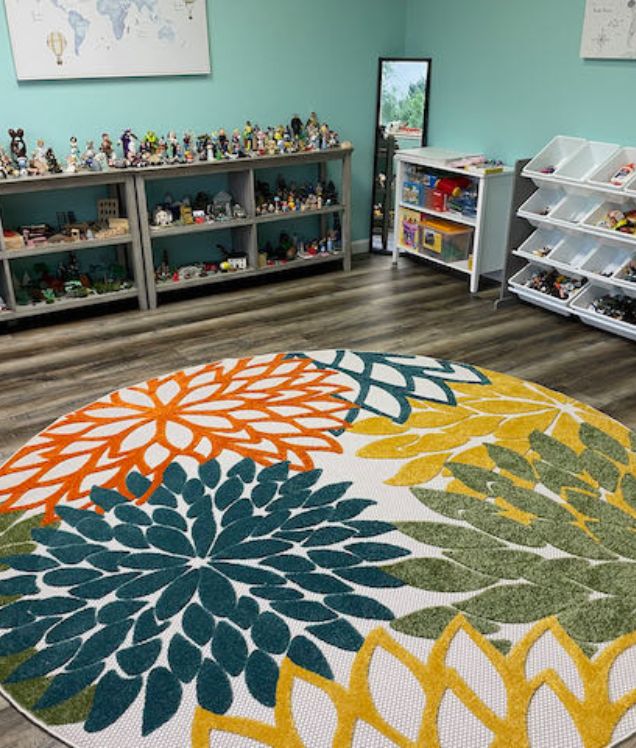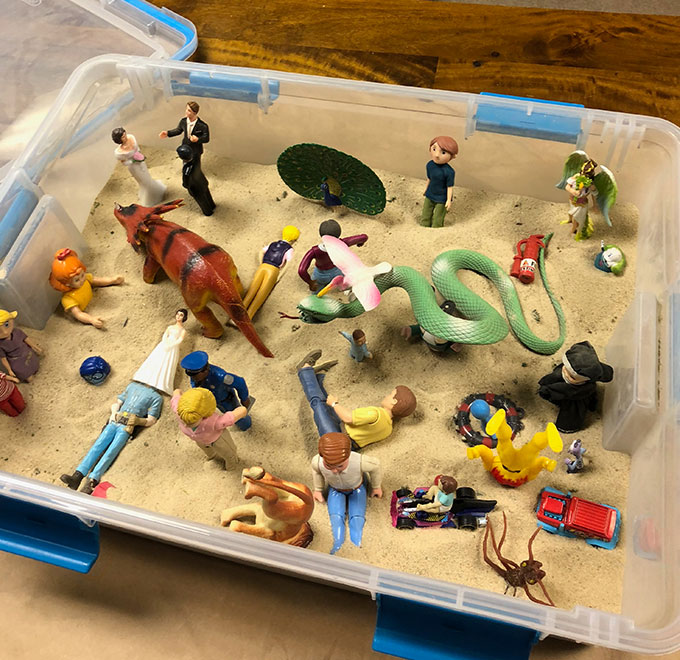
It’s more than fun and games. Play is as natural as breathing and as fundamentally as important as food and shelter. It transcends language, culture, and was even listed by the United Nations Human Rights as a “right for a child to play.
All therapy requires an effective therapeutic relationship. Using play allows for clinicians to establish this relationship by going into their world. It establishes a working relationship for children who may lack sufficient verbal ability or who otherwise lack the ability to articulate their feelings.
Additionally, the presence of toys sends the message to the children that this will be different. To the right is a picture of our actual play therapy room, not just a stock image.
Curative Factors
Self-Expression
In play, children are able to express their thoughts without limitation. Play also allows for emotional distance from potentially emotionally charged issues.

Coping with Stress
Playing out an upcoming event through play can help a child prepare and be less stressed.
Positive Affect
Children love play. Simply engaging in more enjoyable activity tend to leave children feeling less anxious or depressed.

Use of Symbolism
Play can be used to represent real or imagined scenes in a child’s life. Acting these scenes can help the child gain mastery over these events.

Counterconditioning of negative affect
It is impossible for a child to feel afraid and happy or relaxed at the same time. Pairing feared stimuli to more pleasurable activity can help a child overcome phobias or other anxieties.
This was adapted from Foundations of Play Therapy, Second Edition. It was edited by Charles Schaefer. If you are interested in learning more I would highly recommend his book. You can purchase it here.
Play is the language of children. I am sure you have heard of “talk therapy” as an overarching term for psychotherapy for adults. But children lack the skills necessary to adequately express themselves through verbal language. Play therapy offers them a venue for not only expression but to heal.
Play therapy is empirically supported, meaning well-designed studies have shown play therapy is effective against either a placebo or other interventions. In fact, 4 meta-analysis demonstrated statically significant effectiveness for children participating in play therapy (see here for references).

